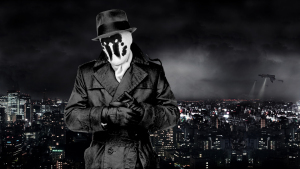Editorial Note: The following is reprinted with permission from Eleanor Skelton’s blog. It was originally published on January 17, 2015.

The morning I moved out, I texted my research professor who was helping me leave that my parents weren’t letting me take the heirloom violin, but left me an old laundry basket, a case of canned green beans, and a pot they didn’t like.
She replied, “That sounds like Harry’s birthday presents from the Dursleys.” Yep. The crazy relatives who made Harry Potter live in the cupboard under the stairs.
Sometimes my parents act like the Dursleys. Or even Miss Minchin in A Little Princess. It’s easy to compare my parents to fairy tale bad guys. And even helpful sometimes in predicting their behavior.
But villainizing anyone denies the psychological complexity at work.
My parents are more like the mature antagonists in classical literature. They’re more similar to Javert in Les Miserables, whose sense of justice and punishment for lawbreakers overrides any compassion, rendering him incapable of giving or accepting mercy.
And the pastor who said honoring my parents as an adult meant absolute obedience isn’t a villain either.
Sometimes I feel like fundamentalism was like living in Wise Blood, one of Flannery O’Connor’s Southern Gothic novels. The story is riddled with variations of extreme street preachers proclaiming damnation, but unable to uphold their own rigid moral standards.
My parents paid tuition for the A Beka Academy video curriculum, which was more than other families at our church could afford and made sure I graduated with an accredited high school diploma so I didn’t have to take the GED like my other homeschooled friends.
In 3rd grade when I was diagnosed with ADHD and prescribed Ritalin and a depressant, my mom saw how unbalanced I was. She told the doctors she’d make our home quiet so I could focus. She copied my long division problems lengthwise on lined notebook paper so I’d keep the columns straight.
My parents noticed I wasn’t on the growth percentile charts at the pediatrician’s office. They appealed for insurance coverage for my growth hormone replacement therapy when I was 12 to 16. Female growth plates between bones fuse around menarche, so my parents worked with my endocrinologist for an experimental combined treatment that delayed puberty and gave me more growing time.
My dad was even going to sell our more expensive car to afford a year of treatment without insurance.
If not for the daily Nutropin and monthly Lupron injections, today I’d be a real-life dwarf. I wouldn’t be able to drive a regular car or reach dishes in kitchen cabinets.
And they did pay for my first three years of college. My dad always said he wanted to give me “every advantage in life.”
I know deep down my parents love me.
Even if they don’t believe I am an adult yet. Even if they try to control what I believe and what I do.
Their beliefs dictate that they should shun me because I don’t measure up to what they think God wants.
Back in high school, the pastor at my last church talked me through why the King James Version isn’t an inspired translation or the only valid Bible to read. It was one of the first conversations that helped me to recognize the fear and control inherent in legalism.
And now he too believes I should be ostracized.
The summer I moved out, I borrowed the graphic novel Watchmen from my punk friend Kat. It’s about the second generation of a group of superheros blended into American history. But the first generation wasn’t as perfect as the press advertised.
“Who watches the Watchmen?” the book asks over and over. Who makes sure the good guys don’t become bad guys? What happens when authority is corrupted?
And (SPOILER) at the end the “villain” is one of their own. Disaster is sort of averted, they save the planet, but there is no real hero, either. Life just continues.
It’s not black and white.
Like Cynthia Jeub wrote, of course it wasn’t all bad.
My parents did many good things. And many hurtful things. I’m not obligated to give into their demands, I don’t have to lose my freedom. The bad doesn’t void the good and the good doesn’t cancel out the bad.
But if I don’t recognize their human complexity, then I am refusing to see the raw reality. And I will blind myself from the truth.




This is so true and a very mature look back and forward. I too see the complexities in my own parents and it was difficult to accept those complexities. For many years, I ignored and denied the very bad, even to myself. Then I acknowledged the bad, at least to myself but made a conscious effort to not allow that to color my treatment of them; I had a very real desire to have no regrets of my own. Today, finally, I am able to see my parents as flawed ( in some ways very flawed) individuals. I feel they loved us as they were capable at the times but in some ways their own weakness caused them to fail in some very detrimental ways and their children were the innocent victims. The older I get, the more I realize ‘such is life’.